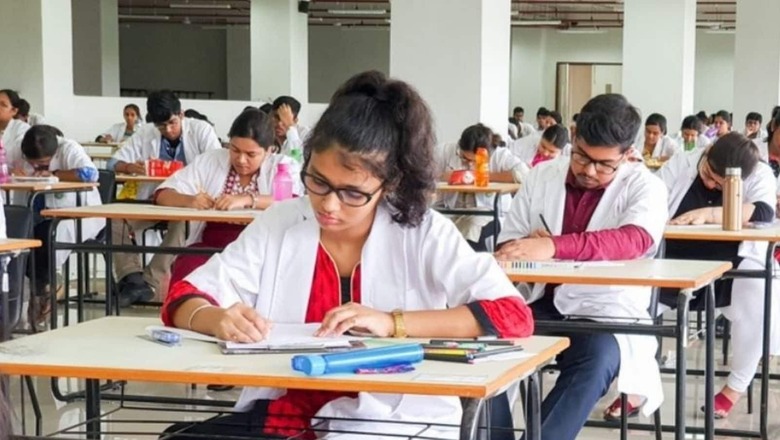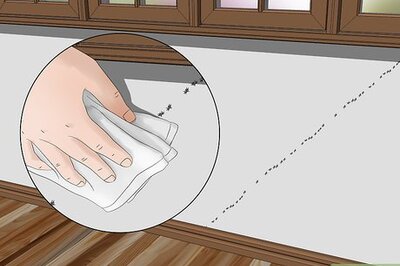
views
The fee of 50 per cent seats in private medical colleges and deemed universities will now be at par with that of government medical colleges, the National Medical Commission (NMC) said in an official notice. It has released the guidelines for the determination of fees and other charges for the 50 per cent MBBS and PG medical seats.
The benefit of this fee structure would be first made available to candidates who avail the government quota seats, “but limited to the extent of 50 per cent of total sanctioned strength of the respective medical college/deemed university,” the NMC said adding that if the government quota seats are less than 50 per cent of the total sanctioned seats, the remaining candidates would avail benefits of the fee equivalent to the government medical college fees on the basis of merit.
Also read| Scrap NEET: TN CM Stalin Calls All-Party Meet to Discuss Way Forward for NEET Bill
The fees can be fixed for a block of three years or on a year-to-year basis. The fee fixed for a student joining the college in a particular year must remain the same for the entire duration of the study. NMC announced the guidelines after consulting with an expert committee constituted by the commission. It had recommended a total of 26 guidelines for determining the fees.
As per the guidelines by the commission, it directed institutions not to charge capitation fees in any form or manner. It further added that for determining the fees for MBBS and PG courses, it must be ensured that the principle of education being “not to profit”, is strictly adhered to. Apart from the operating and maintenance cost, the fees must not contain any excessive expense or exorbitant profit, it added.
Read| Know Why NEET PG Got Postponed, What About Internship Deadline?
“Therefore, it is necessary that whereas all the operating costs and other expenses for running and maintenance of the institution for imparting medical education on a sustainable basis are covered in the fees, no excessive expense and exorbitant profit component should be allowed to be added to the fees,” it said. The operating costs should add the salaries of the teaching and non-teaching staff, expenditure of administrative service, cost of maintenance of laboratories, books, maintenance of the building, among others.
Read all the Latest Education News here




















Comments
0 comment